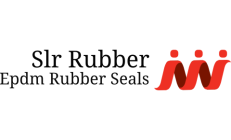PVC pipe seals play a crucial role in ensuring the integrity and functionality of PVC (polyvinyl chloride) piping systems.
PVC pipe seals play a crucial role in ensuring the integrity and functionality of PVC (polyvinyl chloride) piping systems. These seals are designed to provide a secure and leak-proof connection between different sections of PVC pipes, preventing the escape of fluids and maintaining the structural integrity of the overall plumbing or irrigation system.
Here's a detailed description of PVC pipe seals:
1. Material Composition: PVC pipe seals are typically made from high-quality, durable materials such as rubber, silicone, or other elastomers. These materials are chosen for their flexibility, resilience, and resistance to corrosion and degradation over time.
2. Design and Structure: The seals are engineered with a specific design to accommodate the dimensions and specifications of PVC pipes. They often feature a cylindrical or ring-like shape that matches the outer diameter of the pipes, ensuring a snug fit. The interior of the seal may have ribs, grooves, or other patterns to enhance grip and create a tight seal.
3. Functionality: The primary function of PVC pipe seals is to prevent leaks and seepage at joints and connections within a piping system. When installed correctly, the seal forms a barrier that stops the passage of liquids or gases through the connection points. This is crucial for maintaining the efficiency and safety of the plumbing or irrigation system.
4. Installation Process: PVC pipe seals are relatively easy to install, usually requiring manual pressure or the use of tools like wrenches to secure them in place. Some seals may have a simple push-fit design, while others may incorporate tightening mechanisms to ensure a secure connection.
5. Resistance to Environmental Factors: PVC pipe seals are designed to withstand a wide range of environmental conditions. They are resistant to UV radiation, extreme temperatures, and exposure to various chemicals commonly found in water and wastewater systems. This resistance contributes to the longevity of the seals and the overall durability of the piping system.
6. Application Areas: PVC pipe seals find applications in diverse industries, including residential plumbing, agricultural irrigation, industrial processes, and municipal water supply systems. They are used in various configurations such as straight joints, elbow connections, T-joints, and more.
7. Compliance with Standards: High-quality PVC pipe seals adhere to industry standards and certifications to ensure their reliability and performance. Manufacturers often subject their products to rigorous testing for factors like pressure resistance, temperature stability, and chemical compatibility.
8. Maintenance and Replacement: While PVC pipe seals are known for their durability, regular maintenance of the entire piping system is essential. Inspections should be carried out periodically to identify any signs of wear or damage to the seals. If necessary, damaged seals should be promptly replaced to avoid potential leaks.
In summary, PVC pipe seals serve as indispensable components in PVC piping systems, providing a dependable and watertight connection between pipes. Their design, materials, and functionality contribute to the efficiency, safety, and longevity of plumbing and irrigation infrastructure in various applications.

